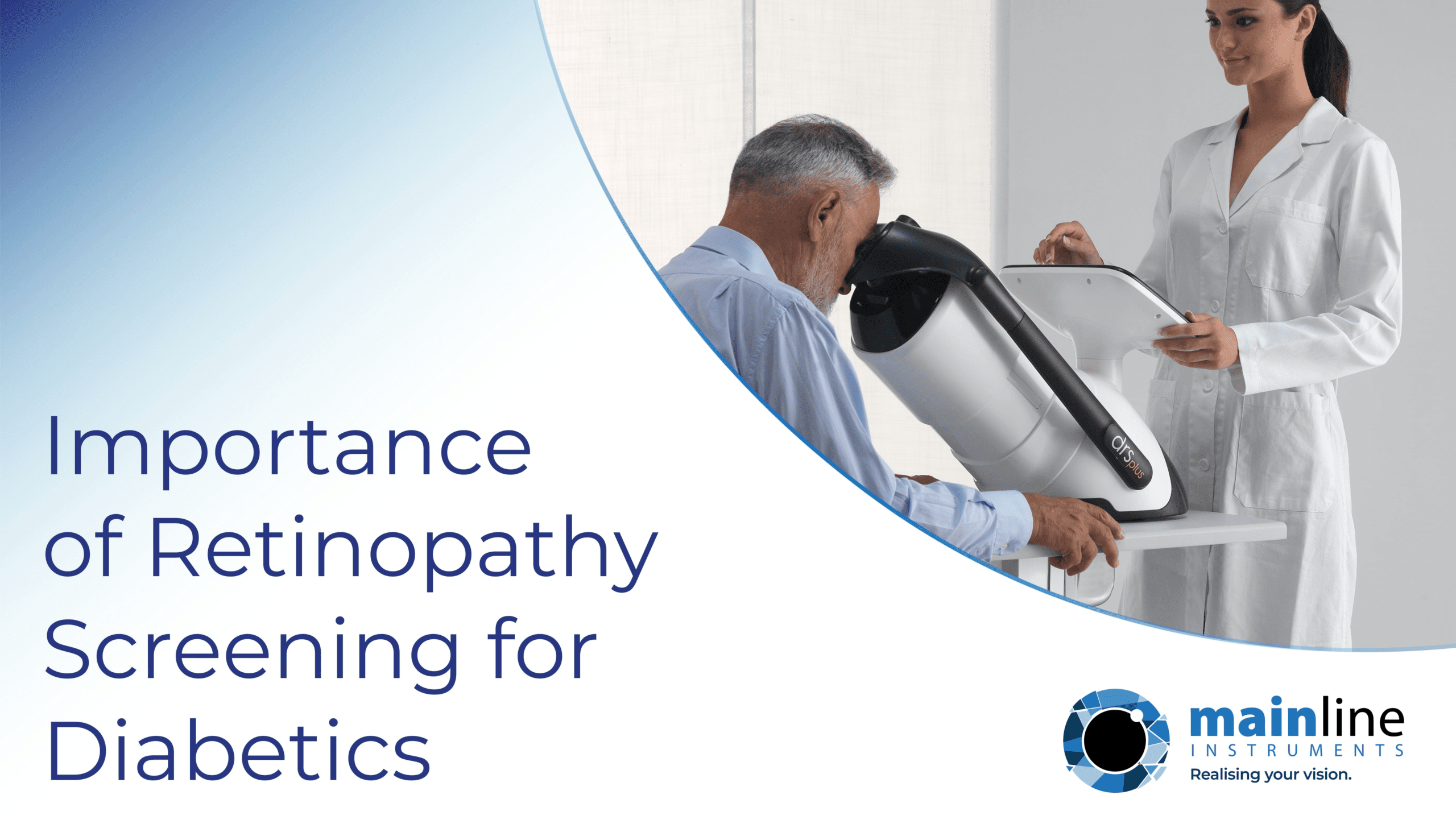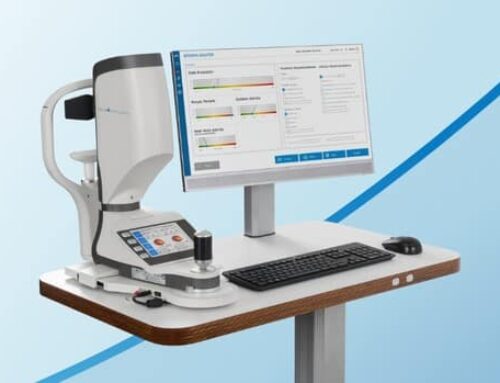In this article, we look at the importance of retinopathy screening for diabetics, as well as what diabetic retinopathy is, what happens during the screening test, and what results may indicate.
Contents
1. What is Diabetic Eye Screening?
2. What is Diabetic Retinopathy?
3. Why is Retinopathy Screening Important?
4. What Happens During the Test?
5. Your Retinopathy Screening Results
6. How to Reduce your Risk of Diabetic Retinopathy
1. What is Diabetic Eye Screening?
Diabetic eye screening is a test that checks for eye problems caused by diabetes. These eye problems are called diabetic retinopathy and can lead to sight loss. The aim of the retinopathy eye screening test is to find issues with your eyes before they impact your sight. If you have diabetes and are over the age of 12 you will be invited to have your eyes checked at least once a year. The diabetic retinopathy eye screening will take photos of the back of your eyes (your retinas) to look for signs of the condition. Early detection prevents the condition from getting worse and will improve the chances of any treatment working effectively.
2. What is Diabetic Retinopathy?
Anyone with type 1 or type 2 diabetes is at risk of developing diabetic retinopathy. Diabetic retinopathy is caused by high blood sugar levels damaging the retina. It causes the small blood vessels in the retina to leak or become blocked. The condition can cause blindness if left undiagnosed and untreated.
3. Why is Retinopathy Screening Important?
Retinopathy screening for diabetics is important as it helps prevent sight loss. Retinopathy does not typically cause symptoms in the early stages, so it can get worse before you start to notice it. It doesn’t present more obvious symptoms until it is more advanced, by which time it can be more difficult to treat. Untreated retinopathy is one of the most common causes of sight loss. The condition can cause permanent blindness if it is not diagnosed and treated quickly. Diabetic retinopathy screening can detect problems in your eyes before it starts to affect your vision. This will prevent it from progressing to a stage where it is more difficult to treat. If the condition is caught early, this will increase the chances of treatment working effectively to prevent damage to your vision and reduce sight loss.
4. What Happens During the Test?
During the test, drops will be put into your eyes to temporarily make your pupils larger. This may sting for a few seconds. The drops will make your sight blurry after about 15 minutes. When the drops start working, you’ll be asked to look into a camera. Photos will be taken of the back of your eyes. The camera won’t touch your eyes, but there will be a bright flash when the picture is taken. The appointment will last for about 30 minutes.
Practical Tips on the Day
- Bring sunglasses to your appointment as everything can look brighter than usual and your eyes may be sensitive to light for a few hours after the test.
- Your vision may also be blurry for a few hours after the test so you should not drive home after the appointment. You may want to ask someone to pick you up after the test.
5. Your Retinopathy Screening Results
You should receive a letter with the results of your diabetic retinopathy screening within 6 weeks of your test. Your result may be one of the following:
- No retinopathy – this means no changes to your eyes were found, and you’ll be asked to come back for another test in a year.
- Background retinopathy – the test found that diabetes has caused some changes to your eyes. Your sight is not affected but it could get worse. You’ll need to come back for another test in a year.
- Referable retinopathy – diabetes has damaged your eyes and your vision could be affected. You’ll be referred to a specialist and taken through treatment options. You may also need screening tests more often.
6. How to Reduce Your Risk of Diabetic Retinopathy
Here’s how to reduce your risk of developing diabetic retinopathy:
● Control your blood sugar, blood pressure, and cholesterol levels
● Take your diabetes medication as prescribed
● Maintain a healthy diet, exercise regularly, and stop smoking
● Get medical advice if you notice changes to your sight such as floaters, vision loss, blurred vision, eye pain, or difficulty seeing in the dark
● Attend all diabetic retinopathy eye screening appointments
Summary
Retinopathy screening for diabetics is highly important as it helps to prevent sight loss. Screening can detect diabetic retinopathy early before symptoms present themselves so that it can be treated as soon as possible to ensure it does not affect your vision.
References / Further Information







